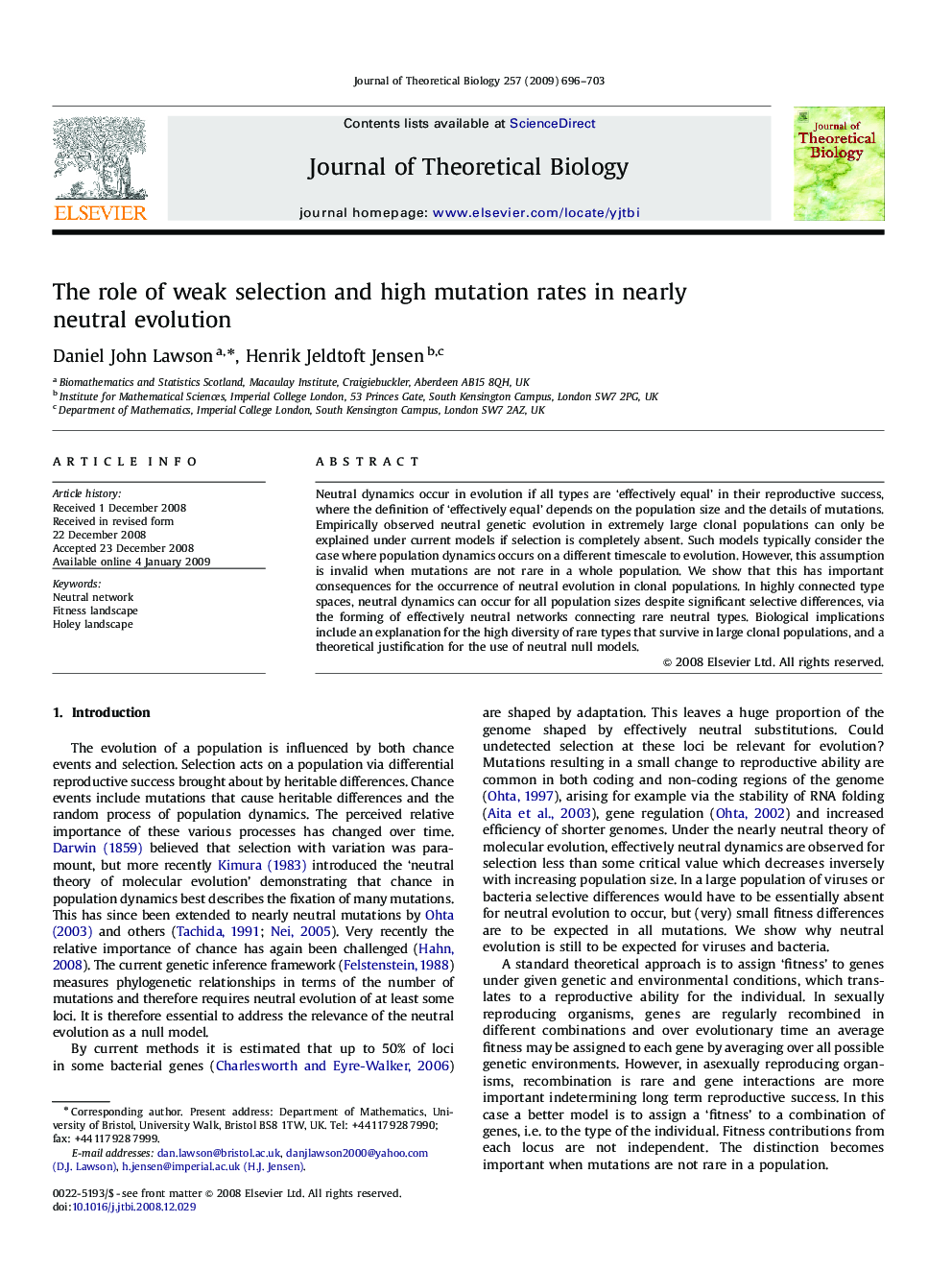| Article ID | Journal | Published Year | Pages | File Type |
|---|---|---|---|---|
| 4498045 | Journal of Theoretical Biology | 2009 | 8 Pages |
Neutral dynamics occur in evolution if all types are ‘effectively equal’ in their reproductive success, where the definition of ‘effectively equal’ depends on the population size and the details of mutations. Empirically observed neutral genetic evolution in extremely large clonal populations can only be explained under current models if selection is completely absent. Such models typically consider the case where population dynamics occurs on a different timescale to evolution. However, this assumption is invalid when mutations are not rare in a whole population. We show that this has important consequences for the occurrence of neutral evolution in clonal populations. In highly connected type spaces, neutral dynamics can occur for all population sizes despite significant selective differences, via the forming of effectively neutral networks connecting rare neutral types. Biological implications include an explanation for the high diversity of rare types that survive in large clonal populations, and a theoretical justification for the use of neutral null models.
